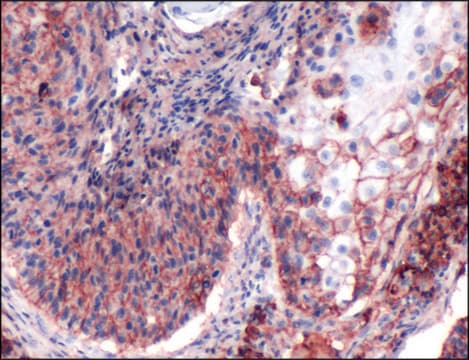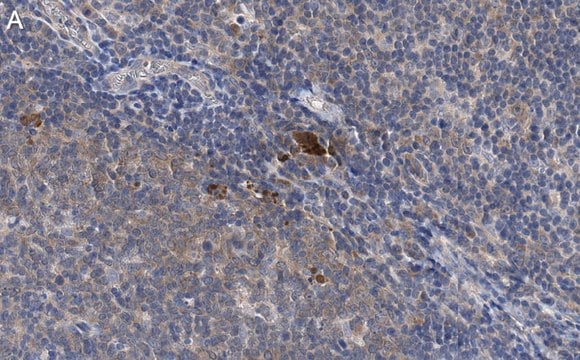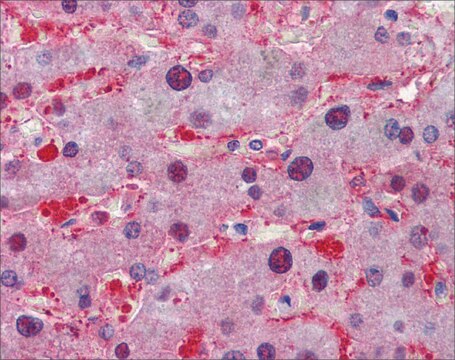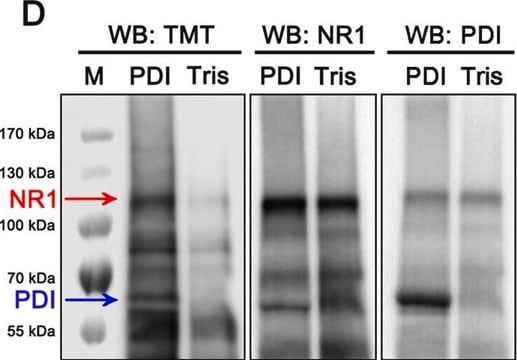MABT78
Anti-mouse CD44 (H-CAM) Antibody, clone KM201
clone KM201, from rat
Sinónimos:
CD44 antigen (homing function and Indian blood group system), CDw44 antigen, HCAM, H-CAM, HUTCH-1, Phagocytic glycoprotein I, Extracellular matrix receptor III, GP90 lymphocyte homing/adhesion receptor, Heparan sulfate proteoglycan, Hermes antigen, Hyalu
About This Item
Productos recomendados
biological source
rat
Quality Level
antibody form
purified antibody
antibody product type
primary antibodies
clone
KM201, monoclonal
species reactivity
mouse
technique(s)
flow cytometry: suitable
isotype
IgG1κ
NCBI accession no.
UniProt accession no.
shipped in
wet ice
target post-translational modification
unmodified
Gene Information
human ... CD44(960)
General description
Specificity
Immunogen
Application
Cell Structure
Stem Cell Research
Adhesion (CAMs)
Hematopoietic Stem Cells
Quality
Flow Cytometry Analysis: 0.1 µg of this antibody detected CD44 in mouse bone marrow cells.
Target description
Linkage
Physical form
Storage and Stability
Analysis Note
Mouse bone marrow cells
Other Notes
Disclaimer
¿No encuentra el producto adecuado?
Pruebe nuestro Herramienta de selección de productos.
Storage Class
12 - Non Combustible Liquids
wgk_germany
WGK 1
flash_point_f
Not applicable
flash_point_c
Not applicable
Certificados de análisis (COA)
Busque Certificados de análisis (COA) introduciendo el número de lote del producto. Los números de lote se encuentran en la etiqueta del producto después de las palabras «Lot» o «Batch»
¿Ya tiene este producto?
Encuentre la documentación para los productos que ha comprado recientemente en la Biblioteca de documentos.
Nuestro equipo de científicos tiene experiencia en todas las áreas de investigación: Ciencias de la vida, Ciencia de los materiales, Síntesis química, Cromatografía, Analítica y muchas otras.
Póngase en contacto con el Servicio técnico








